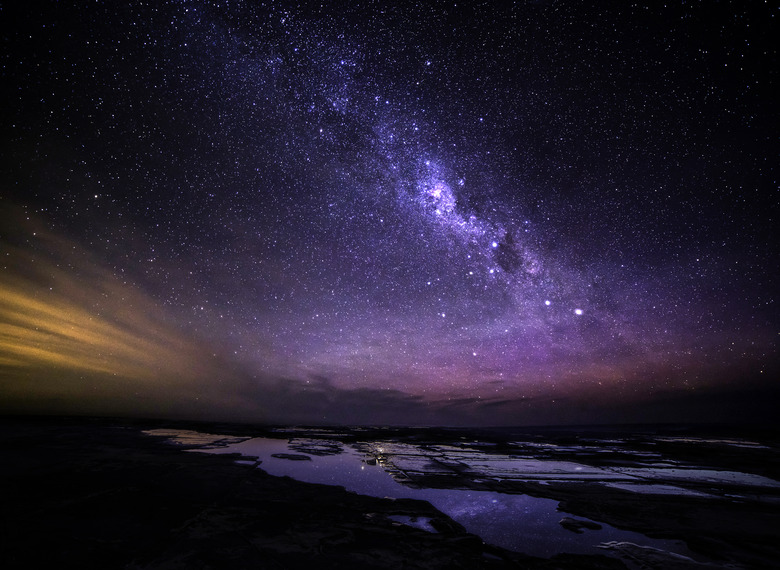The Differences Between A Universe, Galaxy & Solar System
The differences between the universe, galaxies and solar systems are at the heart of the science known as astronomy. Although astronomy is a complex science, these basic terms can be understood by virtually anyone. In fact, a basic understanding of these astronomical systems is generally required in science class at some point during grade school.
Solar System
Solar System
Solar systems are the smallest of the three systems in question. A solar system consists of a star, such as the sun, and the objects affected by its gravity. These objects include planets, moons, asteroids, comets and meteoroids. Although solar systems are smaller than either the universe or a galaxy, the actual size of even the very smallest of solar system is difficult for the human mind to truly comprehend. In terms of scale, if the sun had the dimensions of a tennis ball, the Earth would be the size of a grain of sand located about 8 meters (26 feet) away.
Star-Filled Galaxies
Star-Filled Galaxies
A galaxy is a system of solar systems and other stars. Galaxies, like solar systems, are held together by gravity. In galaxies, the solar systems are separated by vast sections of mostly empty space. The galaxy that contains the Earth and its solar system is called the Milky Way. This galaxy is thought to contain more than 200 billion different stars. Solar systems orbit around their galaxies just as planets orbit around their suns. It takes the Earth's solar system roughly 200 to 250 million years to complete its orbit.
The Universe -- the Big Picture
The Universe — the Big Picture
The universe is the largest of these three astronomical concepts. All things, including galaxies and solar systems, are included within the realm of the universe. Although everything known to man is contained within the universe, scientists believe the universe to be continually expanding. This is thought to be a result of the big bang, the massive explosion of super-condensed matter that created the universe and all things contained within.
Exploring the Differences
Exploring the Differences
Size is the major difference between the universe, galaxies and solar systems. Other differences exist as well, however. Black holes are sections of space with intense gravitational pulls, from which not even light can escape. These phenomena can sometimes be found at the center of galaxies. Large clouds of gas called nebulae exist in the space between galaxies in the universe, but they're not seen as parts of galaxies or solar systems.
Cite This Article
MLA
Black, Michael. "The Differences Between A Universe, Galaxy & Solar System" sciencing.com, https://www.sciencing.com/differences-universe-galaxy-solar-system-8495060/. 9 March 2018.
APA
Black, Michael. (2018, March 9). The Differences Between A Universe, Galaxy & Solar System. sciencing.com. Retrieved from https://www.sciencing.com/differences-universe-galaxy-solar-system-8495060/
Chicago
Black, Michael. The Differences Between A Universe, Galaxy & Solar System last modified August 30, 2022. https://www.sciencing.com/differences-universe-galaxy-solar-system-8495060/
